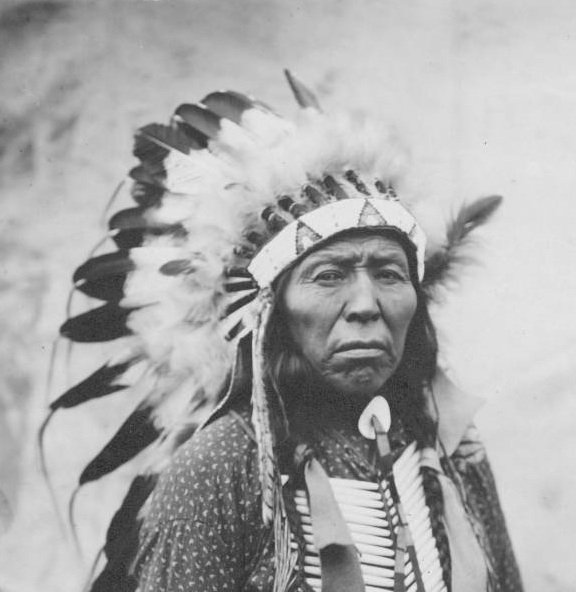American soil was maliciously stolen from the beautiful Native Americans that originated here.
For decades, these tragic events have been celebrated collectively as Columbus Day. We are taught in school that this is a great day to commemorate: the brave discovery of land, after traveling by boat in 1492, by Christopher Columbus.
This is a terribly skewed version of the truth.
The American Indians of our country were raped and murdered in the most malicious of ways, while protecting their land and people from violent thieves. Christopher Columbus changed the world but not in the peaceful manner that our elementary school lessons portrayed.
The Native Americans are still fighting for rights to their land—centuries later. Over 500 treaties have been signed with the Native American people since 1778, all of which have been outright broken or violated in some way by the United States Government. It continues to this day.
October 11th is Indigenous Peoples’ Day, and the moral of commemorating our land’s people is profound; as are the lessons our Native American ancestors teach. I hope you enjoy these words and hold them close to your heart. Hold space, acknowledging and appreciating the wisdom and purity of our land’s people.
Here are a few wise Native American teachings; may they change your perspective on civilized life, as they have changed mine:
The American Indian Ten Commandments:
1. Treat the Earth and all that dwell therein with respect.
2. Remain close to the Great Spirit.
3. Show great respect for your fellow beings.
4. Work together for the benefit of all mankind.
5. Give assistance and kindness wherever needed.
6. Do what you know to be right.
7. Look after the well-being of the mind and body.
8. Dedicate a share of your efforts to the greater good.
9. Be truthful and honest at all times.
10. Take full responsibility for your actions.
“Before our white brothers arrived to make us civilized men, we didn’t have any kind of prison. Because of this, we had no delinquents. We had no locks nor keys, and therefore among us there were no thieves. When someone was so poor that he couldn’t afford a horse, a tent or a blanket, he would, in that case, receive it all as a gift. We were too uncivilized to give great importance to private property. We didn’t know any kind of money, and consequently, the value of a human being was not determined by his wealth. We had no written laws laid down, no lawyers, no politicians, therefore we were not able to cheat and swindle one another. We were really in bad shape before the white men arrived, and I don’t know how to explain how we were able to manage without these fundamental things that (so they tell us) are so necessary for a civilized society.” ~ Lame Deer
“Humankind has not woven the web of life.
We are but one thread within it.
Whatever we do to the web, we do to ourselves.
All things are bound together.
All things connect.”
~ Chief Seattle, 1854
“When all the trees have been cut down,
when all the animals have been hunted,
when all the waters are polluted,
when all the air is unsafe to breathe,
only then will you discover you cannot eat money.”
~ Cree Prophecy
“An old Cherokee chief was teaching his grandson about life:
‘A fight is going on inside me,’ he said to the boy.
‘It is a terrible fight and it is between two wolves.
One is evil—he is anger, envy, sorrow, regret, greed, arrogance, self-pity, guilt, resentment, inferiority, lies, false pride, superiority, self-doubt, and ego.
The other is good—he is joy, peace, love, hope, serenity, humility, kindness, benevolence, empathy, generosity, truth, compassion, and faith.
This same fight is going on inside you, and inside every other person, too.”
The grandson thought about it for a minute, and then asked his grandfather, ‘Which wolf will win?’
The old chief simply replied,
‘The one you feed.'”
“Tell me and I’ll forget. Show me, and I may not remember. Involve me, and I’ll understand.”
“Grown men can learn from little children, for the hearts of the little children are pure. Therefore, the Great Spirit may show to them many things which older people miss.” ~ Black Elk, Oglala Lakota Sioux
“We must protect the forests for our children, grandchildren and children yet to be born. We must protect the forests for those who can’t speak for themselves such as the birds, animals, fish and trees.” ~ Qwatsinas (Hereditary Chief Edward Moody), Nuxalk Nation
“You have to look deeper, way below the anger, the hurt, the hate, the jealousy, the self-pity, way down deeper where the dreams lie, son.
Find your dream.
It’s the pursuit of the dream that heals you.” ~ Billy Mills
“The warrior’s greatest gift is the strength of his heart, not his fist.”
“So live your life that the fear of death can never enter your heart. Trouble no one about their religion; respect others in their view, and demand that they respect yours. Love your life, perfect your life, beautify all things in your life.
Seek to make your life long and its purpose in the service of your people. Prepare a noble death song for the day when you go over the great divide. Always give a word or a sign of salute when meeting or passing a friend, even a stranger, when in a lonely place.
Show respect to all people and grovel to none.
When you arise in the morning give thanks for the food, and for the joy of living. If you see no reason for giving thanks, the fault lies only in yourself.
Abuse no one and no thing, for abuse turns the wise ones into fools and robs the spirit of its vision.
When it comes your time to die, be not like those whose hearts are filled with the fear of death, so that when their time comes they weep and pray for a little more time to live their lives over again in a different way. Sing your death song and die like a hero going home.” ~ Chief Tecumseh (Crouching Tiger) Shawnee Nation 1768-1813
When you are in doubt, be still, and wait; when doubt no longer exists for you, then go forward with courage. So long as mists envelop you, be still; be still until the sunlight pours through and dispels the mists, as it surely will. Then act with courage.” ~ Ponca Chief White Eagle (1800’s to 1914)
Another brilliant read: 12 Native American Ethics that will Enrich your Life.









Read 27 comments and reply